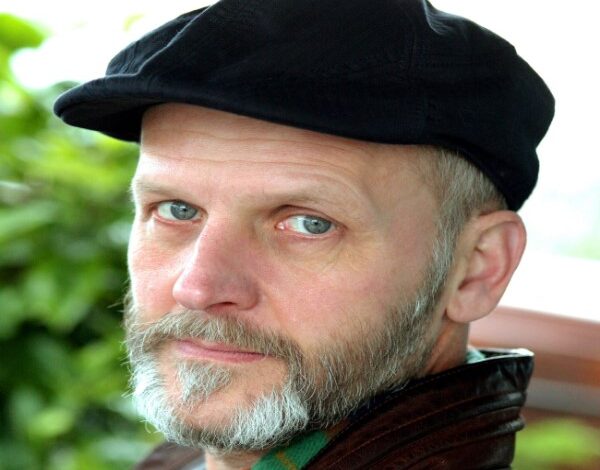Carl Heap: A Versatile Writer, Director, and Actor with a Rich Legacy in Theatre

Carl Heap is a multifaceted entertainment professional renowned for his contributions to theatre, particularly in the realm of early theatre and Shakespearean adaptations. With a unique background in directing, acting, and writing, Heap’s career spans decades of creative endeavours. His journey in theatre is marked by his innovative work with the Medieval Players Theatre Company, as well as his significant contributions to the National Theatre’s Discover programme. This article delves into Carl Heap’s career, focusing on his education, acting work, and his impact as a writer and director.
Early Life and Education
Academic Background
Carl Heap’s journey into theatre began at a prestigious institution: Trinity Hall, Cambridge. Here, he pursued an MA in English, a course that laid the foundation for his future in the arts. His time at Cambridge was not just academically enriching but also creatively stimulating, as Heap was deeply involved in student theatre. His experience at Trinity Hall, particularly in acting and directing, provided a platform for him to experiment with different forms of theatre.
During his university years, Heap was an active participant in various student theatre productions, notably with the Oxford and Cambridge Shakespeare Society. His roles as Dogberry and Don John in Much Ado About Nothing, and as Christopher Sly and Gremio in Taming of the Shrew, were key highlights of his time at Cambridge. Heap also worked as an assistant director for productions such as Taming of the Shrew under the direction of Brian Gilbert. His experiences at Cambridge cemented his passion for theatre, specifically for the works of Shakespeare and medieval theatre.
Further Training
After completing his studies, Heap pursued further training in theatre. He attended the prestigious Royal Academy of Dramatic Art (RADA), where he honed his skills in acting and directing. This training, combined with his academic background, provided Heap with a well-rounded understanding of both classical and contemporary theatre. His passion for storytelling, coupled with his formal education, allowed him to approach both traditional and experimental theatre with unique perspectives.
Carl Heap as an Actor
Early Acting Career
Carl Heap’s acting career was shaped by his work with the Oxford and Cambridge Shakespeare Society, where he took on key roles in iconic Shakespeare plays. His roles as Dogberry and Don John in Much Ado About Nothing and Christopher Sly in Taming of the Shrew showcased his versatility as an actor. Heap’s performances were characterized by a distinct blend of comic timing and deep character exploration, making him a memorable presence on stage.
Work with The Medieval Players Theatre Company
Perhaps one of the most significant milestones in Heap’s career as an actor came with his founding of the Medieval Players Theatre Company in 1980. Heap, along with producer Dick McCaw, established the company with the aim of bringing early theatre, particularly pre-Shakespearean works, to a broader audience. The company’s innovative use of circus skills, puppetry, and masks was ground-breaking at the time and brought a new dimension to historical and medieval theatre.
The Medieval Players toured extensively across the UK and Australia, performing to packed houses. Heap’s performances with the company are remembered for their energetic and captivating style, which blended historical narratives with modern theatrical techniques. Though the company eventually closed due to funding challenges, its legacy continues to influence the way early theatre is performed today.
Carl Heap as a Writer and Director
Founding Beginnings and the National Theatre
Carl Heap’s career as a writer and director is marked by his pioneering work in adapting classical theatre for modern audiences. One of his most notable contributions was his role in the National Theatre’s Discover programme, where he adapted and directed several Shakespeare plays for primary school audiences. These adaptations included Pericles, Romeo and Juliet, A Midsummer Night’s Dream, Macbeth, and Twelfth Night. His skillful edits made the stories more accessible to young audiences while retaining the essence of Shakespeare’s work. These adaptations were not just simplifications of the plays; they were careful re-imaginings that preserved the heart of the original texts.
Heap’s work with the National Theatre resulted in the publication of these adaptations by Oberon Books in 2010. The success of these adaptations demonstrated Heap’s ability to make classical theatre accessible, engaging, and educational for young audiences. His work in this area also reinforced his belief in the power of storytelling and its relevance to contemporary society.
Collaborations with Tom Morris
Heap’s creative partnership with Tom Morris led to the co-writing and directing of several successful productions, including Ben-Hur, Jason and the Argonauts, World Cup Final 1966, St George and the Dragon, and Tombstone Tales and Boothill Ballads. These productions, which often incorporated elements of circus skills, masks, and puppetry, were innovative in their approach and received critical acclaim. Heap’s ability to blend historical narratives with modern theatrical techniques made these productions stand out in the theatre landscape.
The productions went on to tour across the UK and internationally, bringing innovative theatre to a wide audience. Heap’s work at the Battersea Arts Centre (BAC) and his subsequent projects with Beggarsbelief Theatre Company highlighted his knack for creating immersive, dynamic performances that captured the imagination of audiences.
Adaptation and Reimagining
In addition to his work with Shakespeare, Heap’s passion for adapting and reimagining classic texts extended to other historical works. He directed and adapted Pilgrim’s Progress for the Yard Theatre in Hackney Wick in 2012. The production showcased Heap’s ability to breathe new life into classic literature while staying true to the essence of the original works.
Current and Upcoming Projects
Currently, Carl Heap is working on Anatomy of the Gun, a drama-documentary about pioneering trauma surgeons in the historical American Old West. This project, supported by a Wellcome Trust award, marks a new chapter in Heap’s career as he delves into the history of medicine and the American frontier. His ongoing work with Beggarsbelief Theatre Company also continues to explore new forms of storytelling, with upcoming projects that promise to engage and inspire audiences.
Conclusion
Carl Heap’s career as an actor, director, and writer is a testament to his dedication to the craft of theatre. From his early education at Trinity Hall, Cambridge, to his work with the Medieval Players and his later successes with the National Theatre and Beggarsbelief Theatre Company, Heap has left an indelible mark on the world of theatre. His ability to blend early theatre with modern techniques, adapt classic works for contemporary audiences, and create innovative productions has made him a significant figure in the entertainment industry. As he continues to explore new projects, Carl Heap’s influence on theatre will undoubtedly remain an enduring legacy.



